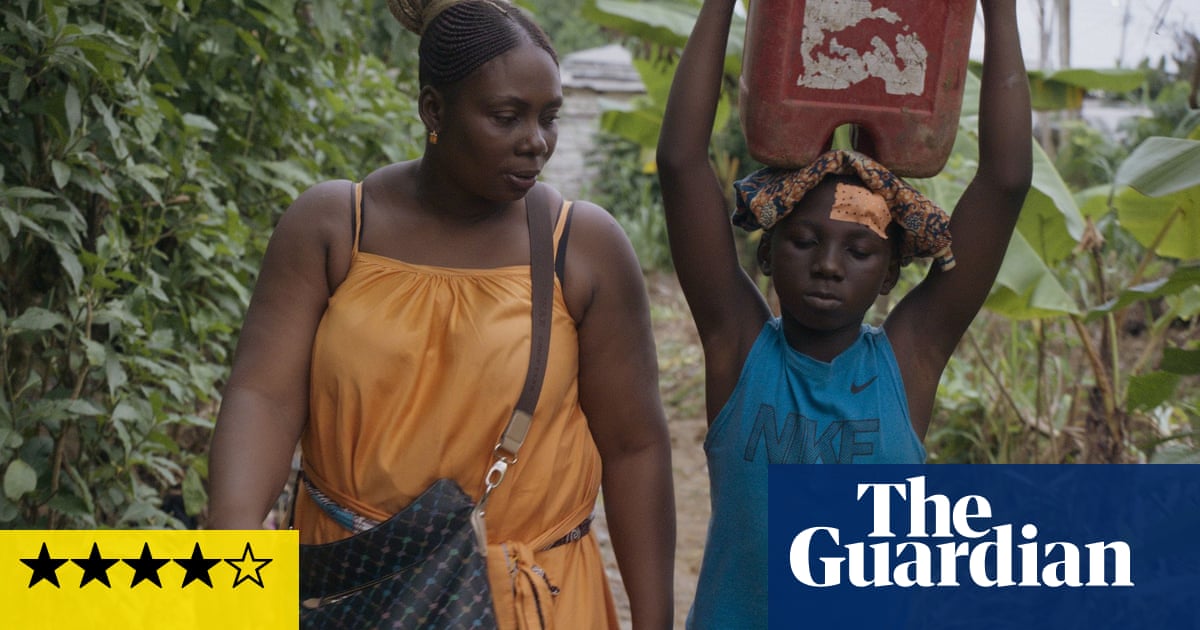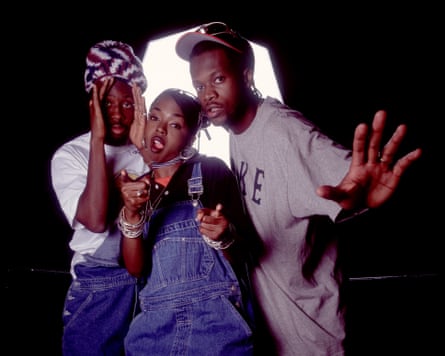
The simple image of pushing a seam through a sewing machine becomes a profound life statement in Rosine Mbakam’s debut feature, which is focused on talented clothier Pierrette (played by the director’s cousin Pierrette Aboheu Njeuthat) in the Cameroonian city Douala. It’s emblematic of the need to keep moving forward in daily life – and to come out the other side smiling, with stoicism and resilience. As one customer puts it: “I’m getting by. That’s life. When you fall down, you get up again.”
Pierrette is having, it has to be said, an especially rough day. A single mother also caring for an elderly parent (Marguerite Mbakop), she is already scraping for cash. Regularly bartered into submission by her clientele, she always holds her gaze bashfully downwards – either out of anger, or embarrassment at having to assert herself. When she takes a motorcycle taxi after work, robbers relieve her of all her savings, disastrously just as the new school year is beginning. Meanwhile her home is flooded, endangering the clothes she is preparing and leaving her wondering how she will escape this soggy calvary.
Shot mostly in medium closeup documentary-style segments, acted with flawless naturalism by a non-professional cast, Mambar Pierrette is neorealist down to its bones. But with the seamstress and her circle of acquaintances coming together to trade their frustrations – a trip to Guinea that almost ends in sex work, a disappointing fling – it also draws on the gossipy domestic drama of neighbouring Nollywood. Older storytelling traditions are layered in there too: Pierrette’s forlorn mother tells her grandson Duval (Duval Franklin Nwodu Chinedu) a disturbing juju-type tale of once having her heart switched out for a little boy’s.
Such attitudes show the generational gap operating in central Africa, between the likes of Pierrette’s mother – who insists her daughter shouldn’t report her feckless husband to the authorities – and a new, more proactive cohort. Pierrette and friends are the ones pooling savings in tontines, refusing to acquiesce with how things were. But Mbakam always incorporates these state-of-the-nation diagnostics with subtlety, and a level of humour that suggests none of these strivers is a prisoner of their circumstances.
Near the end, a passing entertainer disparages the white mannequin outside the workshop that has been surveying everyone’s tribulations. Mbakam’s feminist parable has a winning integrity and grace.
Source: theguardian.com





















